Latest News
20 September 2022
New radiolabelling method for personalised cancer treatment
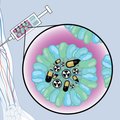
Researchers from TU Delft have found a new method to efficiently make nano carriers loaded with radioactive salts for both medical imaging and treatment. Because the assembly of these nano carriers is incredibly simple, the innovation is very suitable for clinical research and treatments of cancer patients.
19 September 2022
TU Delft opens globally unique wind tunnel
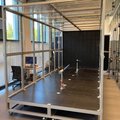
Wind turbines are getting bigger and bigger and the wind speed is never the same on every part of the rotor – the rotating part of a wind turbine. That is why it is important to carry out experiments using non-uniform wind fields: fields in which the wind speed is not the same everywhere. With the opening of TU Delft’s Wind AI Lab – a globally unique wind tunnel – this will become possible.
15 September 2022
Society needs more engineers: TU Delft initiates exploration of growth and multi-campus strategy

Engineers have a vital role to play in solving the major societal issues of this century. This means that the education of engineers is crucial for the welfare and prosperity of the Netherlands. The domestic demand for engineers is as high as ever. Here lies a great responsibility, which TU Delft is committed to taking. It requires a new strategic direction, a different way of thinking. Rather than looking at what we can handle, the focus should be on what is needed and how we can achieve that. This poses a huge undertaking that we certainly cannot meet by ourselves.
05 September 2022
Best Professor Award received by Kees Vuik
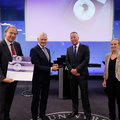
On Monday 5 September, Kees Vuik, Professor Numerical Analysis at the Faculty of Electrical Engineering, Mathematics and Computer Science (EEMCS) received the Best Professor Award 2022. The festive ceremony preceded the Opening of the Academic Year 2022-2023. Delft University Fund awards the prestigious Professor of Excellence Award since 1994.
26 August 2022
New CRISPR-Cas system with on-off switch cuts proteins
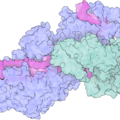
Researchers from TU Delft in the group of Stan Broun have discovered a CRISPR-Cas system that cuts proteins instead of DNA.
25 August 2022
Cells: strong at the right place and time
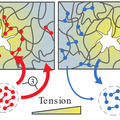
Researchers from TU Delft and NWO institute AMOLF discovered how certain molecular bonds make living cells both flexible, in order to move, as well as strong, in order to withstand forces.
24 August 2022
Queen Máxima and Minister Dijkgraaf visit Delft University of Technology Reception Week
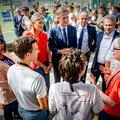
High-profile visitors during Delft's Reception Week (OWee) and Introduction Programme (IP) for new students: Her Majesty Queen Máxima and Minister Dijkgraaf of Education, Culture and Science visited the Activity Market and talked to students about mental well-being.
22 August 2022
Measurement campaign maps GHG emissions and air pollution in Rotterdam
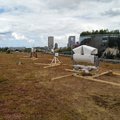
Scientists from TU Delft, together with scientist from other research institutions, will investigate how the reduction of urban greenhouse gas emissions and air pollution can best be monitored with atmospheric measurements. Monday, August 22, the measurement campaign will start in the Rotterdam region. TU Delft is using mobile rader equipment to measure urban emissions.
15 August 2022
TU Delft iGEM team aims to develop sensor to detect GHB in drinks
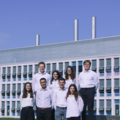
Someone may slip drugs into your drink without you noticing, after which you may not be able to think clearly. However, this kind of drugging can almost never be proven, because GHB disappears from the blood within 3 hours. The iGEM student team at TU Delft is working on a fast sensor to detect GHB in drinks. This will alert the user and provide evidence of drugging.
04 August 2022
TU Delft researchers create flow-driven rotors at the nanoscale
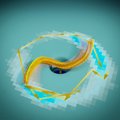
Onderzoekers van de TU Delft hebben de kleinste door stroming gedreven motoren ter wereld ontwikkeld. Geïnspireerd door de iconische Nederlandse windmolens en door biologische motoreiwitten hebben ze een zichzelf configurerende, stromingsgedreven turbine uit DNA gemaakt, die energie van een elektrische of zoutgradiënt omzet in bruikbaar mechanisch vermogen. De resultaten bieden perspectief voor de ontwikkeling van actieve robotica op nanoschaal. Het artikel is vandaag gepubliceerd in Nature Physics.
